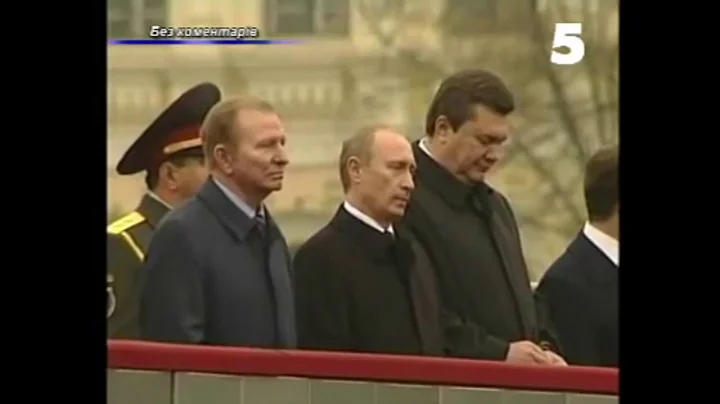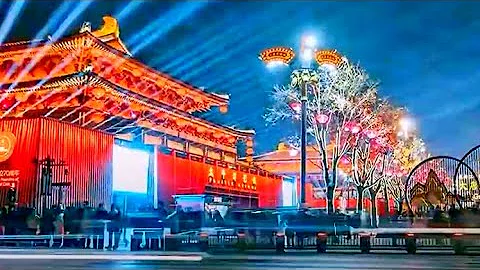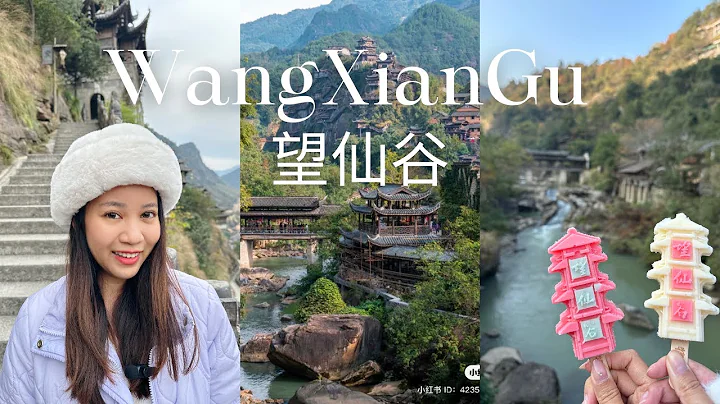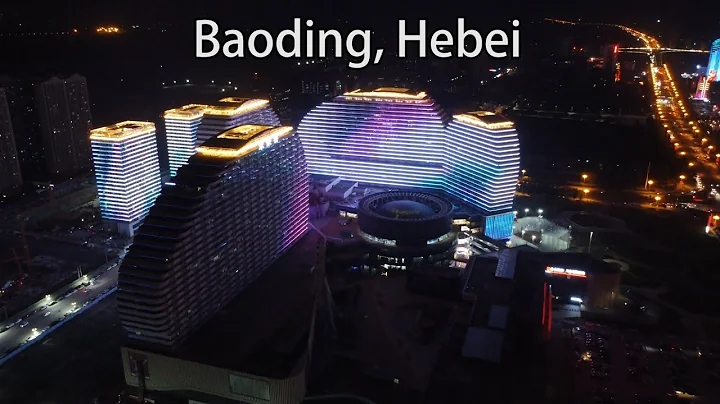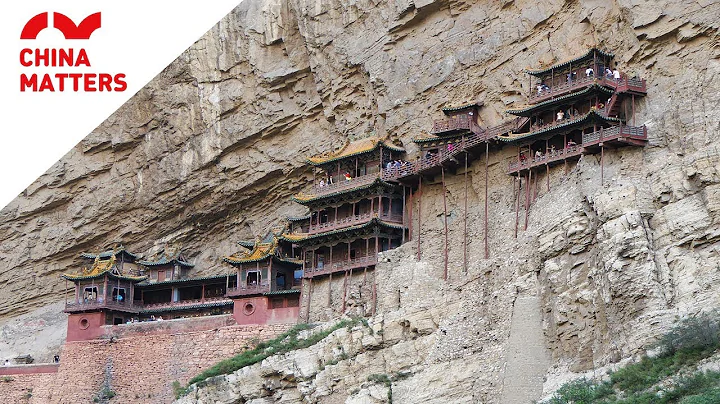Not long after the founding of New China, a group of fellow villagers with Hunan accents approached Chairman Mao. However, their next few words made Chairman Mao furious!
So what exactly happened? Who are these fellow Hunan fellows? Why was Chairman Mao so angry after hearing what they said?
Before the liberation of Hunan, Chairman Mao was deeply concerned about relatives and fellow villagers there. So when Ren Changhui, commander of the 138th Division of the 46th Army of the People's Liberation Army, was about to arrive in Hunan, Chairman Mao told him that he must visit his hometown.

After receiving the task, Ren Changhui also understood Chairman Mao's feelings about missing his relatives and fellow villagers. Therefore, after the liberation of Hunan, he rushed to Chairman Mao's hometown as soon as possible to inquire about the whereabouts of his relatives.
Fortunately, many of Chairman Mao's relatives and fellow villagers have survived after years of war. And they were all very proud after learning that Chairman Mao was alive and had become a great man in our country.
Some villagers suggested that since Chairman Mao is now stable in Beiping, and his seventh uncle has stomach problems, the medical conditions in the village are not very good, and his stomach problems have not been cured, it is better to let him seek treatment. Chairman Mao, please help me.
After learning that Chairman Mao's seventh uncle was suffering from stomach problems, the soldiers immediately told them Chairman Mao's current address.
In this way, the seventh uncle, accompanied by several juniors, came to Chairman Mao's door with a basket of local products. After the guards at the door learned that they were relatives of Chairman Mao, they immediately reported them to Chairman Mao.
Chairman Mao, who was resting, was also very happy when he heard that his relatives were coming, and he hurriedly got up to greet them. Unexpectedly, after relatives saw the setting of Chairman Mao's living room, they said that it was too simple and incomparable with Jinluan Palace !
After all, the seventh uncle is old and has lived in the past. The feudal thoughts in his mind have not been changed for a while, and he thinks that Chairman Mao should live in a magnificent place.
So after seeing how simple his residence was, he actually said such words.
However, Chairman Mao didn't mind and patiently explained to him that he was working for the people and that the imperial system was a thing of the past. However, relatives felt that his remarks were just modesty.
In order to entertain them, Chairman Mao used the royalties he had accumulated over the years to buy a table of delicious food and set up a family banquet in the living room.
After learning that Uncle Seventh had a stomach problem at the dinner table, Chairman Mao left them to live in Peking for a few days without saying a word, and all of Uncle Seventh's medical expenses were borne by him.
The relatives were very happy after hearing this. Although Chairman Mao is now in a high position, he still has not forgotten these distant relatives.
For a time, everyone relied on this relationship to stand tall in the yard. The seventh uncle even told the younger generation that if their status were in the past, they would be equivalent to relatives of the emperor.
So when Chairman Mao went out to work, they proudly ordered the guards to move the antiques from the Forbidden City into Chairman Mao's room. He also said that the place where he lived was too simple and he had to dress up in a presentable way.
This time the guards guarding the Forbidden City were stumped.
Because everyone knows that Chairman Mao has always been simple, and he has never been special in any aspect of food, clothing, housing and transportation. But now Chairman Mao's relatives are instructing them to do such a thing, which inevitably makes everyone feel a little embarrassed.
Chairman Mao happened to be returning from work. He heard a commotion in the house, so he went to see what was going on. After learning that his relatives had made such an unreasonable request, Chairman Mao said angrily: These antiques are national property, and this country is not named Mao!
When the relatives saw Chairman Mao's angry look for the first time, they also lowered their heads.
However, Chairman Mao did not mean to blame them. It was just that the seventh uncle was old and it was inevitable that his thoughts were still stuck in the past.
So he invited everyone to have a meal again and explained to them carefully that in this position, he naturally had to lead by example, and he did not want to be in a special mood.
After hearing this, his relatives expressed their understanding to him.
Just when Chairman Mao was feeling very pleased, the seventh uncle's next words troubled him again! Which sentence is
? Let’s see next!
It turns out that the seventh uncle felt that Chairman Mao was very prestigious now, and believed that with his ability he would be able to help the villagers find good jobs in Peiping. So he asked Chairman Mao puzzledly why he hadn't arranged it yet?
also said that he could stay and look at the gate.
And the seventh uncle's words obviously did not understand what Chairman Mao just meant.
Faced with his request, Chairman Mao finally sighed and could only refuse more simply, and said that he had booked the ticket for the seventh uncle.
When the seventh uncle heard this, he became anxious and said frankly that he didn't want to leave yet. He kept praising the city and said he didn't want to go back to the countryside to farm.
Chairman Mao had no choice but to have some new clothes he had prepared in advance and his royalties be handed over to a group of relatives, and persuaded them to go home as soon as possible.
After the founding of the People's Republic of China, Chairman Mao still adhered to the ideological philosophy of being impartial and impartial, and rejected the job application letters sent to him by relatives and fellow villagers, hoping that they would understand.
However, although Chairman Mao rejected their request for employment, he has been sending them his hard-earned royalties.
Seeing this, some people may be confused. Since Chairman Mao wants to help them, wouldn't it be better to just find them a job? Why do you have to provide them with a living security out of your own pocket after rejecting their request?
In fact, the reason why Chairman Mao rejected them was not because he did not want to help.
But as Chairman Mao said, even if he is in a high position, he does not want to be special. For decades, he has been appointing people on their merits, not nepotism, just because he does not want to repeat the mistakes of Chiang Kai-shek and sincerely wants to develop the country.
Therefore, Chairman Mao must reject them and cannot provide convenience to any of them.
And among those people, many people think that it is better to live in the city, but there is no future in farming in the countryside. Chairman Mao could not agree with their views, because he himself was a farmer. He knew the hardships and greatness of the working people at the bottom, and felt that being a farmer was a meaningful job.
Besides, those people are all good at it. If they really want to find a job in the city, they can find it by themselves, so why should Chairman Mao help them? It's nothing more than opportunistic.
This also strengthened Chairman Mao’s determination not to provide convenience for them!
Moreover, Chairman Mao was not only strict with them, he also never gave special treatment to his own children.
When his children were in elementary school, in order to prevent the teachers from knowing the children’s true identities and thus provide them with some special benefits, Chairman Mao also deliberately filled in the father’s name in the school’s information registration form. Driver's name.
And the driver only delivered the children once when they first reported to school. Because Chairman Mao felt that even his children should not be transported by special cars every day, which was not allowed in his heart.
Although some guards advised him at the time that Chairman Mao's children were not ordinary children, and some people were not interested in children from ordinary families, Chairman Mao's children were easily targeted.
However, Chairman Mao still insisted that he could not pick them up.
Even one night, Chairman Mao's youngest daughter was not home even after dark because of her playfulness. The worried guard immediately asked the driver to pick up the child.

Chairman Mao still refused after hearing this. He also said that the car did not belong to him, but to the country. He insisted that his daughter was no different from the daughters of ordinary people.
Seeing that it was getting dark, the guards were really worried, so they had to hide from Chairman Mao and secretly pick up his little daughter to go home.
Unexpectedly, Chairman Mao knew about this and criticized him severely. He also told his daughter to remember that even his daughter could not enjoy any special treatment and must insist on going home by herself.
Chairman Mao was no exception when it came to his own sons.
When the Korean War broke out, in the face of the US military's repeated attempts to use the war to cover up its ambitions to attack our country's borders, Chairman Mao decisively sent troops to support North Korea and protect our country's territorial security.
But what many people may not know is that the first person to become a volunteer was actually Chairman Mao’s eldest son.
At that time, our New China had just been established, and its weapons and equipment were also much behind the United States. Everyone knows that this battle must be a tough one, but no one flinches in order to protect their homeland.
Under this situation, Chairman Mao's son was also deeply affected and spontaneously asked to join the war on the front line, determined to contribute his own strength to the defense of our country.
At this moment, Chairman Mao did not selfishly feel that this was his son, but regarded him as a brave and fearless soldier. Like thousands of soldiers who fought bloody battles to defend the motherland, he agreed to his son without hesitation. request.
Later, when the news of his sacrifice reached Chairman Mao, the guards were very worried about whether Chairman Mao could withstand the blow. However, Chairman Mao stood still for a long time, and in the end he just sighed.
He said: People will die in war. Who made him my son?
It can be seen how selfless Chairman Mao was in his life. However, his selflessness is not what ordinary people think of as ruthless.
After the application letters sent by the villagers were rejected by Chairman Mao one after another, everyone thought that he had forgotten the kindness of the villagers, thus reducing the exchange of letters, but there was such a person who was favored by Chairman Mao .
In June 1952, Chairman Mao was handling official business as usual. A staff member delivered letters as usual, and among the pile of letters, there was one from his hometown Shaoshan .
Chairman Mao was very happy and opened the letter immediately.
The main idea of the letter is that Chairman Mao's neighbor Mao Aigui is facing difficulties. A family of six needs to be supported by one person. However, Mao Aigui, the only laborer in the family, also suffers from eye disease, which greatly affects his work. So he sheepishly wrote this letter, hoping to get a job for his fourteen-year-old son.
Chairman Mao felt mixed after reading this letter. He rejected many job application letters from his family members, but he was deep in thought about this one alone.
Mao Aigui was Chairman Mao's neighbor, and the two families could be said to be family friends. Moreover, Mao Aigui's cousin also made an indelible contribution to New China.
Even Mao Aigui’s eyes were persecuted by traitors because of her relationship with Chairman Mao, and she has suffered from eye diseases since then. Nowadays, the life of a family of six is very difficult.
Chairman Mao knew that once he helped his neighbor Mao Aigui, it might be unfair to other villagers. However, if he turns a blind eye to this neighbor's letter today, he will really not be able to comfort the spirits of his family's revolutionary martyrs in heaven.
Moreover, Mao Aigui’s family was also kind to Chairman Mao.
Where does this come from? Keep reading and you'll find the answer!
On January 23, 1920, Chairman Mao, who was in Peking, suddenly learned of the death of his father. However, transportation conditions were limited at that time, and Chairman Mao could not rush home in time to take care of his father's funeral.
However, his neighbor Mao Aigui's family took the initiative to take care of his father's funeral. This move undoubtedly made Chairman Mao very grateful and moved.
After the founding of New China, although the life of Mao Aigui's family has always been very difficult, he remained silent because he did not want to trouble Chairman Mao.
When he saw many villagers writing letters to Chairman Mao, hoping to use this relationship to find a good job in Peking, Mao Aigui remained unmoved. It was only when he was unable to support a family by himself that he finally embarrassedly asked someone to deliver a letter to Chairman Mao.
As a family member of a martyr, Mao Aigui was kind to Chairman Mao, so Chairman Mao should lend a helping hand to him in his most difficult time, both in public and private matters.
Chairman Mao did indeed do this later. Although he was always worried about what the villagers would think of him, the situation of Mao Aigui's family was urgent. Since he knew about it, he had to help.
After careful consideration, Chairman Mao wrote a letter back to Mao Aigui and stated in the letter that he could take the letter to the relevant local departments.
Mao Aigui was overjoyed when he received the reply, because too many villagers had tried to apply for jobs to Chairman Mao but failed. Originally, he didn't have much hope this time, but Chairman Mao actually replied to him.
And Mao Aigui's son also successfully relied on this letter to become a waiter at a tobacco and alcohol company in Zhuzhou City. From now on, we can provide some of the most basic life guarantees for Mao Aigui's family.
Unexpectedly, after seeing Chairman Mao helping Mao Aigui's family, other villagers, instead of feeling unfair, all understood his painstaking efforts.
It turns out that Chairman Mao did not forget his fellow villagers, but when he faced the villagers who were really in difficulty, Chairman Mao would spare no effort to lend a helping hand to them.
Looking back on the past days, although Chairman Mao clearly rejected their application letters, he still cared about them all the time. And he has mailed the royalties to them for ten consecutive years to help the poor in his hometown.

Even when he was dying, he never forgot to tell his descendants that he must continue to help the folks in his hometown after he left. It's so touching.
Chairman Mao's move also deeply touched the hearts of countless people. This hero who was strong and unyielding on the battlefield actually always showed infinite tenderness when facing the people.
At the end of the article, let us praise the great Chairman Mao.








